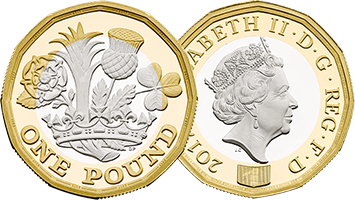IoT-enabled Halter for Horses uses Machine Learning and a Whole Lot More!
Justify just won the Kentucky Derby, besting the field by 2 ½ lengths on Saturday. He was purchased as a yearling at auction for $500,000. And while not all horses cost that much, it’s fair to say owning a show horse or racehorse is far from inexpensive. With steep investments in their livestock, not to mention an emotional connection to their animals, new technology is available to help protect the animals’ health.
We’ve largely accepted that the internet of things (IoT) is taking over our homes with applications from smart refrigerators to IoT-enabled doorbells. But with the addition of some very high-tech sensors and ultra-wideband impulse radar, the IoT is now changing the way we care for horses. Yes, the IoT-enabled wearables are now available for use in stables, horse trailers, and pastures throughout the US and Canada to monitor and protect horses.
Protequus, a biomedical engineering and data science firm dedicated to equine health and safety, recently released its NIGHTWATCH24 halter. This smart halter is designed to alert equine caretakers via text, phone call, and email at the early signs of danger or distress in their horse, such as colic (a common disorder of the digestive system), being cast (when a horse is stuck in a lying position and unable to stand), and foaling (giving birth).
Patrick Moorhead profiled the NIGHTWATCH24 technology for Forbes magazine, saying, “… I am blown away by the level of sophistication and amount of bleeding-edge technology organized into a very small and low-profile form factor.
How the Smart Halter Works
Horses aren’t under constant observation by their caretakers. And distress often occurs at night, when they are out in a pasture, or when the horses are in transport.
The NIGHTWATCH24 halter is designed to monitor horses for signs of distress around the clock. It notifies caretakers via text, call, and email if the horse is showing signs of stress, enabling faster intervention and treatment for their ailments. Additionally, a visual distress indicator uses an LED alert so that a person can quickly evaluate a horse’s well-being by simply completing a walk-by inspection. This is ideal when a wireless connection is not present.
While physically lightweight and compact, the wearable monitor is no technology lightweight. The device contains GNSS GPS, accelerometers, and gyroscope sensors to generate real-time biometric and behavioral data. A barometric pressure sensor, along with the accelerometer, determines the horse’s posture.
It uses edge computing to process some data before transmitting to the cloud. On-device computation reduces the amount of data being transmitted and stored.
Four different antennas are used to detect the horse’s respiratory and heart rate, determine location, and connect to either WIFI or a cellular-3G carrier network.
Machine learning is used to determine a horse’s unique physiology and adapt to them over time. MATLAB was used to prototype machine learning training and on-device algorithms that predict equine distress. The distress is calculated and results in a 10-point equine distress score that is sent to the registered tables and phones associated with each animal.
Moorhead stated, “NIGHTWATCH is the most sophisticated animal IoT device I have ever researched and one of the most sophisticated IoT devices I have ever seen.”
Protequus has designed a very high-tech solution. But with 150 horses dying each day from colic in the US alone, the company is focused on the life-saving potential of the tool.
Protequus states, “NIGHTWATCH not only has the potential to save the lives of many horses but also revolutionize how equine insurance companies assess risk, how veterinarians practice telemedicine, and how researchers design primary-prevention studies.”









评论
要发表评论,请点击 此处 登录到您的 MathWorks 帐户或创建一个新帐户。